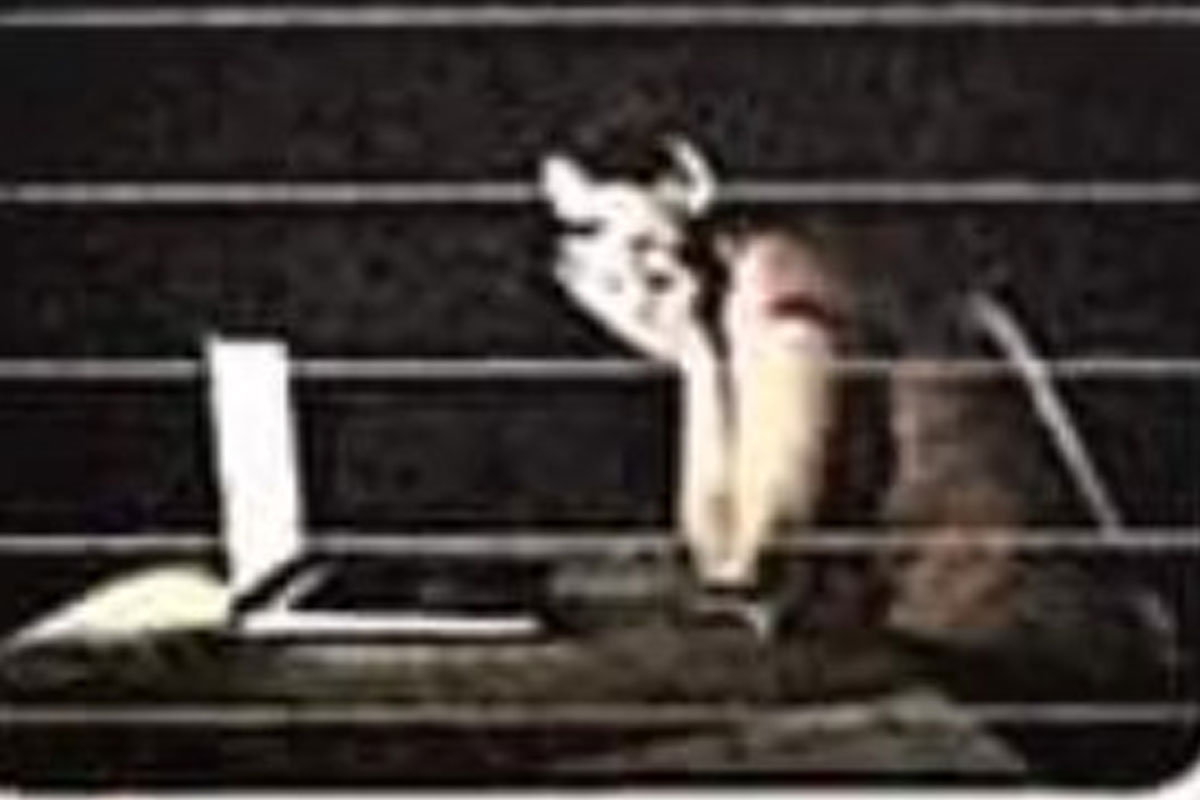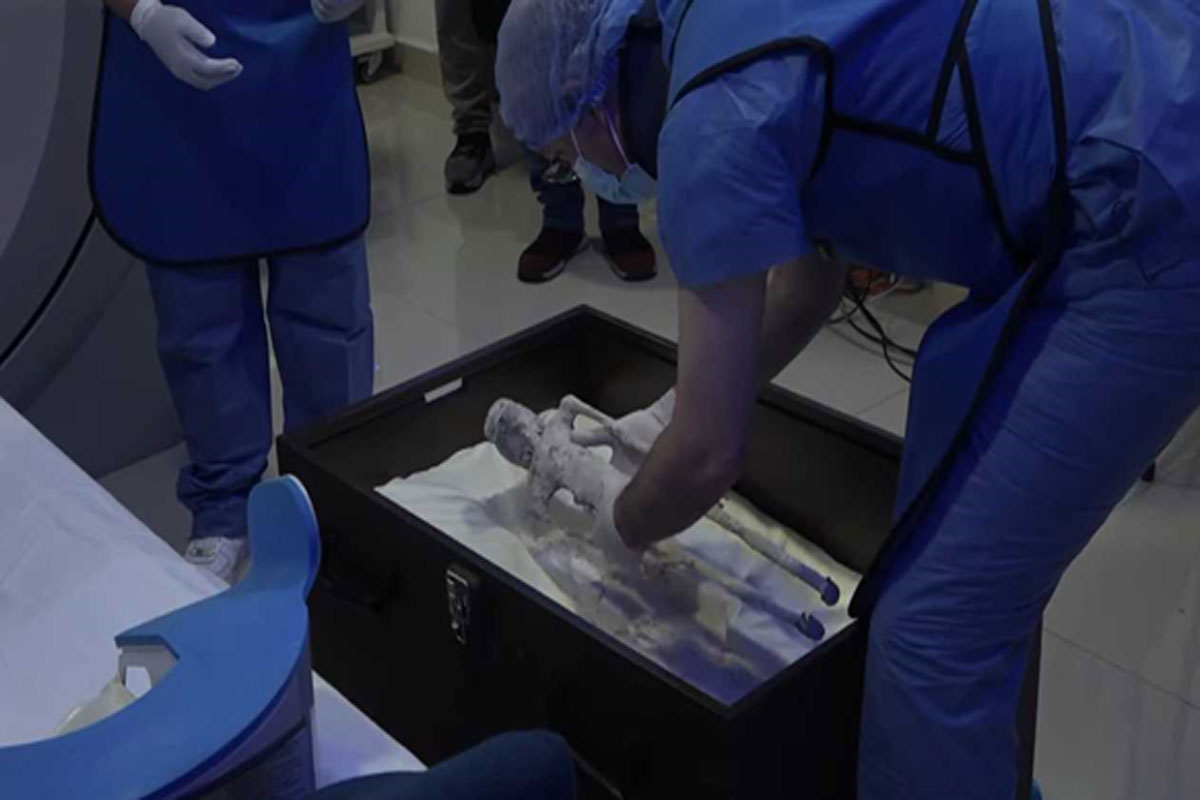
14 Times Science Fiction Writers Predicted the Future
Jordan Love
All manner of people have made extraordinary future predictions throughout history, but science fiction writers seem to have a particular knack for getting things right. From Jules Verne to George Orwell, sci-fi writers have been frighteningly good at predicting what the future would hold. We may not be living in a dystopian or utopian society as many assumed, but there are plenty of aspects of today’s society that make it seem like science fiction writers predicted the future.
H.G. Wells’s time machine is still a matter of fiction, but that was only one of his several visions of the future. He had plenty of other predictions of the future that came true. Likewise, Ray Bradbury and Phillip K. Dick were hit and miss with their versions of the future. Some sci-fi authors made vague predictions that can certainly be interpreted as coming true, while others made decisive, intricate predictions that are startling accurate in hindsight.
Unlike Nostradamus, these writers weren’t in the business of telling the future. They’re all writers first and foremost, futurists who predicted the future second. Their writings reflect both realistic and fantastical versions of various futures they imagined, and their predictions are almost more impressive for that. Much of what these authors wrote was considered totally outlandish at the time, yet a considerable amount of it has come true.
We might not all have flying cars and hoverboards yet, but that technology is no longer unrealistic. Who knows what kind of crazy predictions the sci-fi authors of today are making that might turn out to be true a hundred years from now.
________________________________________
• George Orwell Predicted Big Brother
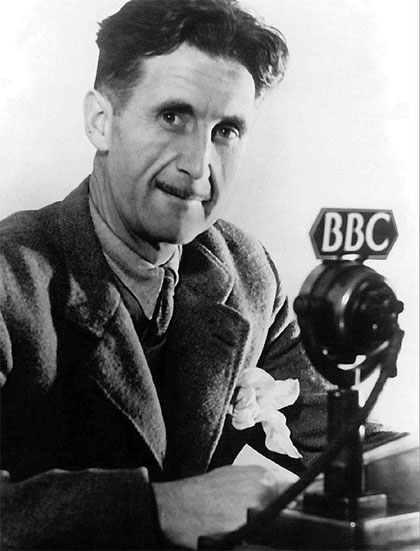 Photo: Abee5 / flickr / CC-BY 2.0
Photo: Abee5 / flickr / CC-BY 2.0
Big Brother was a lot more extreme in George Orwell’s classic 1984 than it is today, but he still got a lot of things right. We may not have the thought police, but we do have CCTV cameras just about everywhere.
Add that to all the other ways companies and the government can monitor citizens – from phone calls to online activity – and you’ve got a veritable surveillance state. In China, where things like the Internet are highly moderated and monitored, 1984 is even more foreboding.
• • Jules Verne Predicted the Moon Landing
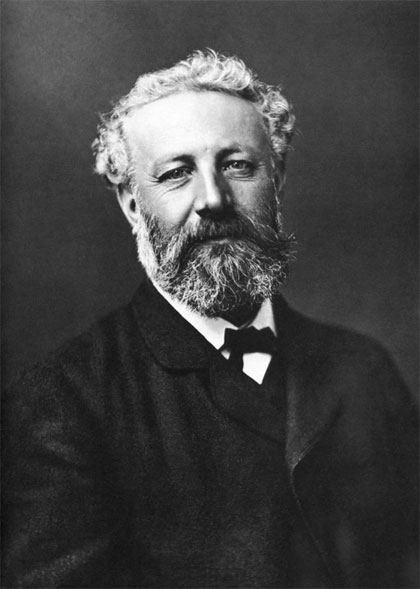 Photo: Wikipedia
Photo: Wikipedia
Jules Verne certainly had his fair share of future predictions. One of the most impressively accurate came courtesy of his short story, “From the Earth to the Moon,” in which he predicted that man would travel to the moon. He got many facts about the voyage right, including elements of the space shuttle, the month it would launch, from where it would launch, and the number of astronauts on board.
• • Philip K. Dick Imagined a World Full of Virtual Reality and Holograms
 Photo: rlerdorf / flickr / CC-BY 2.0
Photo: rlerdorf / flickr / CC-BY 2.0
Several of Phillip K. Dicks most famous works, including Minority Report, were full of virtual and augmented reality. The author imagined worlds where everything around you could be something else, thanks to electronics that altered the perception of reality.
In 2016, several virtual reality systems are set to take over gaming and entertainment, likely proving Dick’s predictions to be accurate.
• • Robert Heinlein Predicted the Cold War
 Photo: Wikimedia
Photo: Wikimedia
Five years before the United States dropped its nuclear bombs, Heinlein predicted their existence and how they would lead to the Cold War. He imagined the United States would be the first country to develop nuclear weapons and that a heated and dangerous battle to catch up would ensue.
• • Edward Bellamy Came Up with Credit Cards
 Photo: Wikimedia
Photo: Wikimedia
In his 1887 novel Looking Backward, Bellamy describes a concept that is relatively close to that of the modern day credit card. In his future utopian society, set in the year 2000, citizens use credit cards, in lieu of physical money, to make purchases.
The credit cards are based on money in a central bank controlled by the government. In the same book, Bellamy also describes what are essentially modern department stores.
• • Aldous Huxley Predicted Genetic Engineering
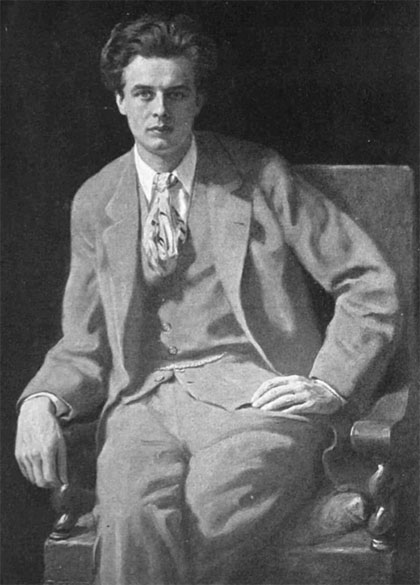 Photo: Wikimedia
Photo: Wikimedia
In Brave New World, Aldous Huxley imagines a future that is dominated by genetic engineering. In his future, people are genetically engineered to fit perfectly into various classes and societal structures. There is no room for imagination or freedom, as everything is essentially mapped out according to how you were engineered.
We haven’t fallen into the pessimistic future that Huxley imagined quite yet, though the modern process of genetic engineering is quite similar to what he describes.
• • Douglas Adams Predicted eBooks
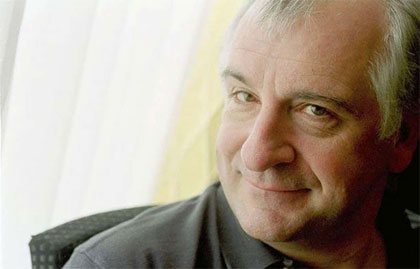 Photo: Wikimedia
Photo: Wikimedia
In The Hitchhiker’s Guide to the Galaxy, Adams predicts a sort of tablet/eBook/Siri hybrid. The Hitchhiker’s Guide to the Galaxy is a book inside Hitchhiker’s that talks and digitally displays information. It helps the protagonists navigate the mysterious galaxy, giving them helpful tips and information along the way.
It can be voice activated and in many ways acts like an iPad.
• • Hugo Gernsback Predicted FaceTime
 Photo: Wikimedia
Photo: Wikimedia
In Hugo Gernsback’s Ralph 124C 41+, the author predicted video calls with what he called the Telephot. It was a big video screen that allowed people to talk to each other just like modern video calls do. Gernsback’s book was published in 1911, long before we had Skype.
Gernsback also made predictions about air conditioning, television, and the many uses of electricity.
• • Arthur C. Clarke Predicted Smartwatches and Satellites
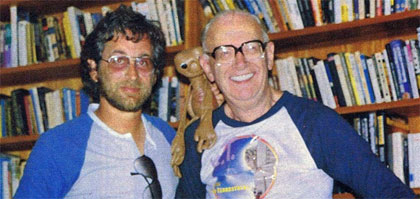 Photo: Tom Simpson / flickr / CC-BY-NC-ND 2.0
Photo: Tom Simpson / flickr / CC-BY-NC-ND 2.0
The science fiction author of 2001: A Space Odyssey first predicted satellite communication relays in a 1945 manuscript. Years later, after satellites had become a real thing, he predicted smartwatches, or “wristwatch telephones,” as he called them.
The writer also imagined the Internet, through which he believed people would be able to do things like book plane tickets and buy groceries.
• • Ray Bradbury Predicted Self-Driving Cars
 Photo: Wikimedia
Photo: Wikimedia
Self-driving cars may not be the norm, but they are certainly the future, and Ray Bradbury knew that way back in 1951. Bradbury wrote about cars that drove themselves in his novel, The Pedestrian. Although plenty of other science fiction writers piggybacked off the idea over the last 60+ years, Bradbury is the real pioneer of the idea. Hopefully Google will give him some credit when their autonomous cars take over the world.
• H.G. Wells Predicted Cell Phones and Voicemail
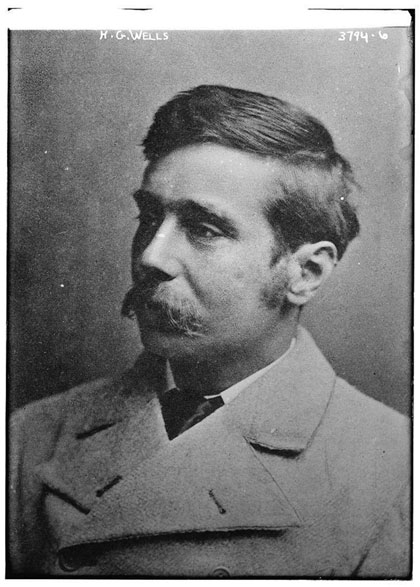 Photo: The Library of Congress / flickr / No known copyright restrictions
Photo: The Library of Congress / flickr / No known copyright restrictions
Sure, we don’t have time machines to go visit the Eloi, but Wells’s ideas of cell phones and voicemails certainly have. In both The Shape of Things to Come and Men Like Gods, Wells imagined what essentially amounted to cell phones and voicemails. The characters in his books used these gadgets as their primary sources for communication in much the same ways that we do today.
• • H.G. Wells Came Up with the Atomic Bomb
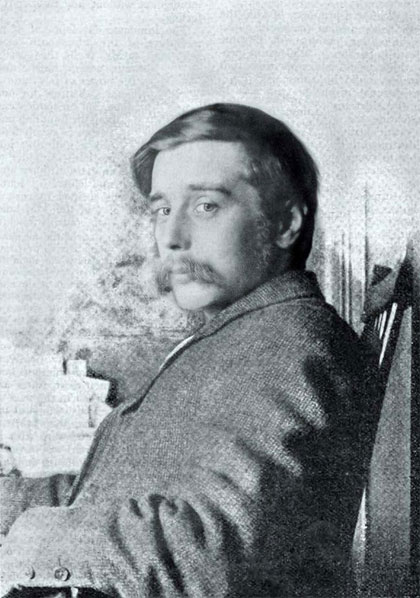 Photo: Futurilla / flickr / CC-BY-NC 2.0
Photo: Futurilla / flickr / CC-BY-NC 2.0
He may not have predicted the mushroom cloud, but H.G. Wells did predict the atomic bomb long before it was actually a thing. In 1914, he wrote that an explosion from radioactive decay would be massive and that the nuclear fallout from it would be devastating. As we know now, he was right on both accounts.
• • Mark Twain Wrote About the Internet Almost a Century Before It Existed
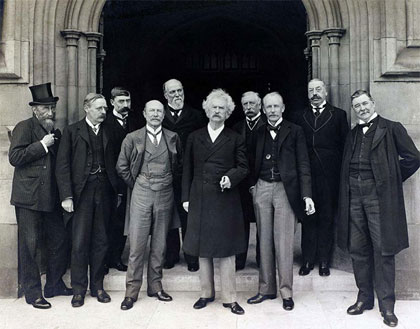 Photo: UK Parliament / flickr / CC-BY-NC 2.0
Photo: UK Parliament / flickr / CC-BY-NC 2.0
In 1898, Mark Twain essentially envisioned what would become the Internet. He wrote about something he called a telectroscope – essentially a dial-up connection – which allowed people to connect to a worldwide network via their phone lines, letting them see and hear information from all over the globe.
• • Ray Bradbury Came Up with the Idea of Earbuds
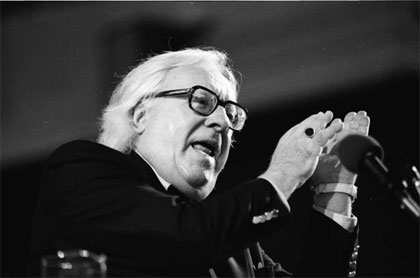 Photo: Wikimedia
Photo: Wikimedia
Earbuds weren’t around in 1953 when Ray Bradbury predicted them in Fahrenheit 451. He imagined them pretty much like they are today: little devices that fit right into your ear and play all sorts of sounds.
Out of all the futuristic predictions on this list Bradybury’s ear buds may be the one that we use most in our every day lives.
• • Mary Shelley Predicted Transplants
 Photo: Wikimedia
Photo: Wikimedia
Published in 1818 Mary Shelley’s The Modern Prometheus imagined a world where science could cure death with the help of organ transplants. In her book Doctor Frankenstein reanimates dead tissue with electricity after sewing it together, and while that may far out even for modern medical practices her foresight did imagine organ transplants more than a 100 years before they ever happened.
ranker.com












